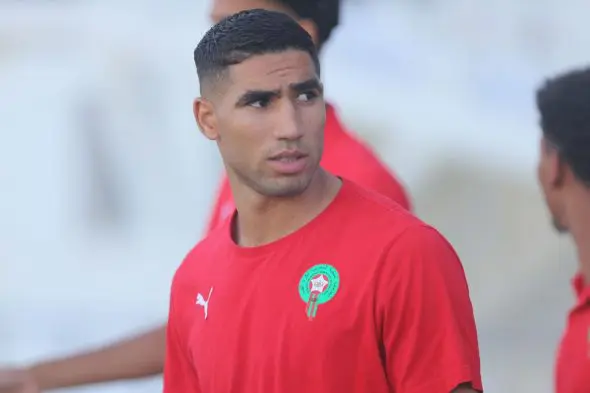Achraf Hakimi’s voting choices for the FIFA Best Men’s Player Award have drawn criticism after the results were revealed, leading to claims of favoritism and a lack of impartiality.
On Tuesday evening, FIFA named Real Madrid’s Brazilian star Vinicius Junior as The Best Men’s Player for 2024.
The award, widely regarded as a consolation after Vinicius was overlooked for the Ballon d’Or in favor of Manchester City’s Rodri, has been the subject of intense debate.
As part of the voting process, national team captains, coaches, journalists, and fans all contribute to the final decision.
With Morocco’s Romain Saïss absent, Hakimi assumed the role of team captain and submitted his choices.
The Moroccan full-back selected his close friend and former Paris Saint-Germain teammate Kylian Mbappé for first place, followed by Vinicius Junior and Rodri.
Le vote d’Achraf Hakimi 🇲🇦 pour le trophée The Best 2024 :
🥇 Kylian Mbappé 🇫🇷
🥈 Vinicius Junior 🇧🇷
🥉 Rodri 🇪🇸 pic.twitter.com/LWuDdSMGwr— SOCCER212 (@SCCR_212) December 17, 2024
Hakimi’s decision to prioritize Mbappé—a player whose season was less decorated than Vinicius’ trophy-laden campaign—has drawn sharp criticism.
Observers have accused Hakimi of allowing personal relationships to influence his vote.
One critic described it as a “friendship trophy” awarded to Mbappé, highlighting the defender’s well-documented bond with the French star during their time at PSG.
The controversy was further fuelled by Hakimi’s recent visit to Madrid last September, adding to suspicions about potential bias.
Many feel Vinicius Junior, who played a central role in Real Madrid’s La Liga and Champions League double, was a more deserving top choice.
The backlash comes at a difficult time for Hakimi, just days after another disappointment at the CAF Awards.
The Moroccan defender was widely tipped to win the African Ballon d’Or but ultimately lost out to Nigerian forward Ademola Lookman—a result that surprised many, given the ceremony took place on Moroccan soil.
Critics argue that Hakimi’s voting decisions at FIFA’s The Best reflect a pattern of subjectivity that has overshadowed his performances on the pitch.
While it is not unusual for friendships to influence such selections, the uproar underscores the challenges of ensuring fairness in subjective awards processes.
For Hakimi, who continues to be a pivotal figure for Morocco and Paris Saint-Germain, the controversy is an unwelcome distraction.
However, the debate serves as a reminder of the scrutiny that comes with leadership roles in international football, where every decision—on or off the pitch—is placed under the microscope.











